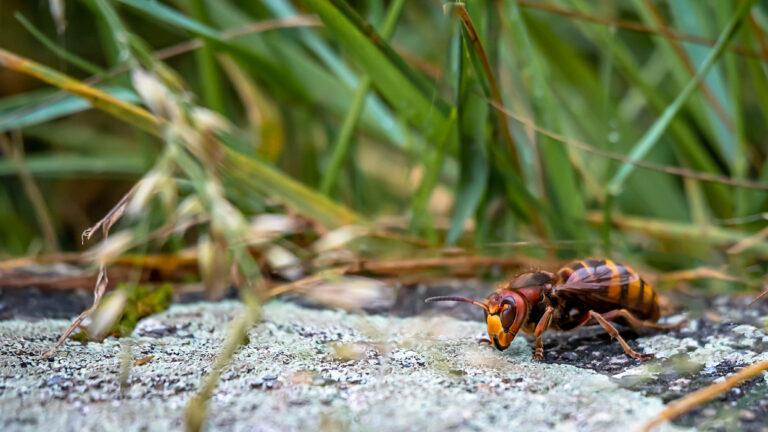The Asian hornet was accidentally introduced from China into Europe (southern France, then Belgium, Italy). During the DFI’s emerging risk identification process, information on the detection of Moku virus in Asian hornet was received in 2017. Moku virus belongs to the genus iflavirus and was firstly described in Hawaii in 2016. In Belgium, it has been found in several species: Vespa velutina nigrithorax (Asian hornet), Vespula pensylvanicaa (American wasp), Apis mellifera (honeybee), Varroa destructor (Varroa mite). Moku virus was detected using NGS. Information on the pathogenicity of Moku virus to bees is incomplete.
A study published in 2023 discussed the possible transmission of Moku virus between hornet and bee species. The study concluded that the longevity of bees may be affected by high Moku virus counts, taking into account that when Moku virus counts are high, other pathogen viruses are typically present. However, we know that the structure of Moku virus is very similar to Slow Bee Paralysis virus (SPV).
The iflavirus genus is also characterised by its ability to influence the behaviour of other parasites in the host. Further information would be needed on the transmission route of Moku virus, the likelihood and mode of transmission from Asian hornets to honeybees, and whether or not Moku virus is present in Asian hornets in Hungary.
EFSA EREN discussed this issue in 2017, where the importance of the issue was not clear to all parties. In the end, it was concluded that until more information on the physiological impact of Moku virus on bees is available, EREN cannot close this issue.

